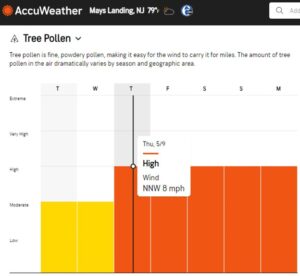The New Jersey Departments of Health (NJDOH) and Agriculture (NJDA) are closely monitoring the emerging situation with H5N1 bird flu and would like to provide important information to New Jersey farm owners. Please refer to the memo from NJDOH and NJDA: Information for Farm Owners and Farm Workers (highlights provided below). The public health risk of H5N1 bird flu is low, but people can sometimes get bird flu, usually after close, unprotected contact with infected animals. Poultry and livestock farmers and workers, veterinarians and veterinary staff, and slaughterhouse workers performing certain tasks on lactating dairy cattle are at increased risk of exposure to animals infected with bird flu viruses. Farms containing multiple species, particularly cattle, and/or poultry, should uphold biosecurity practices that reduce the risk of disease spreading between animals. Farm staff and visitors should adhere to recommended precautions regarding contact with other animals and follow personal protective equipment (PPE) protocols.
Rutgers Cooperative Extension is collaborating with NJDOH, following guidance from the CDC, to assist farm owners with preparedness by providing initial PPE supplies by request at county extension offices. To request PPE supplies and/or receive additional information, please contact your respective county extension office (https://njaes.rutgers.edu/county/). You will be asked to specify the quantity and type of PPE needed for your operation.
Refer to the Centers for Disease Control and Prevention’s flyer “Protect Yourself from H5N1 When Working With Farm Animals,” for more guidance on the application, removal, and disposal (or possible re-use) of each personal protective equipment item.
PPE from NJDOH includes the following as supply remains available:
- Bouffant caps
- Coveralls
- Face shields and refills
- Goggles
- Gloves
- N95 respirators
- Gowns
- Shoe covers



